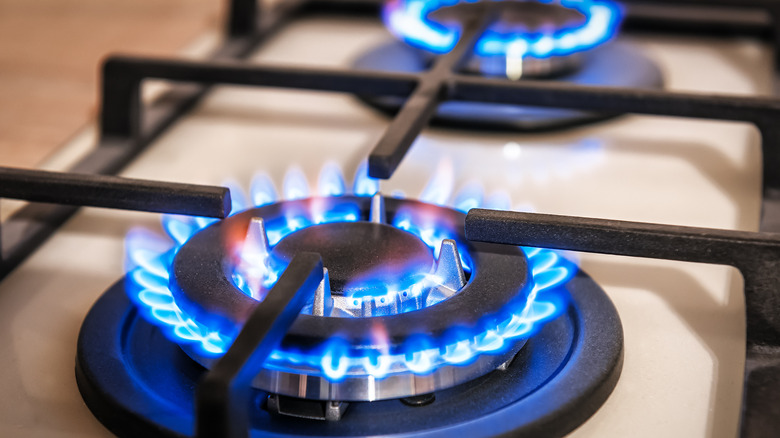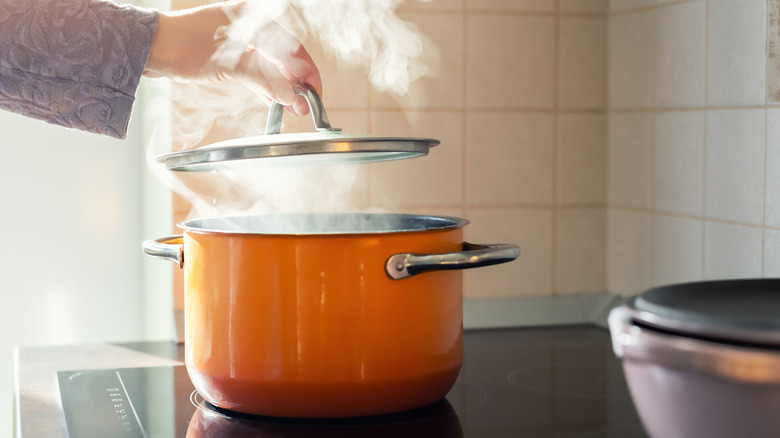California's Gas Stove Ban Has Been Officially Overturned
California kitchens are back in the news again because of the gas versus electric stove debate. In 2019, Berkeley, California was the first city to ban gas hookups, which effectively banned gas-run appliances, in most residential and new commercial construction projects. Shortly thereafter, the California Restaurant Association sued the city of Berkeley.
Other cities followed, sparking a nationwide conversation around environmental justice, health ramifications, and government overreach. By 2022, the California Air Resource Board approved a sweeping proposal to drastically reduce greenhouse gas emissions and fossil fuel usage, which included a plan to fully ban selling gas furnaces and water heaters by 2030 (via NPR). This caused even more panic among those who favored gas stoves, fearing their ranges would be next.
However, recently, the 9th U.S. Circuit Court of Appeals ruled in favor of the California Restaurant Association, deciding that the ban on new gas hookups in Berkeley was unenforceable because this kind of regulation falls under the domain of Congress, not a municipality. The court determined Berkeley violated the U.S. Energy Policy Conservation Act of 1975.
It remains to be seen what effects the decision will have
Environmental activists and public health advocates are disappointed. Matt Vespa, who works with the organization Earthjustice, affirmed the importance of continuing to fight for better regulation in a statement shared with the Associated Press. He said, "As we face a climate and air quality crisis from coast to coast, it is vital that cities and states maintain all legal pathways to protect public health, cut climate emissions, and increase safety by addressing pollution from buildings." Several studies have shown that gas appliances contribute to greenhouse gas emissions, leak cancer-causing chemicals, and may be linked to childhood asthma.
President and chief executive of the California Restaurant Association, Jot Condie, said in a statement to NBC, "Natural gas appliances are crucial for restaurants to operate effectively and efficiently." For instance, it is true that wok chefs can never really leave behind gas stovetops, and certain dishes cannot be replicated on an induction burner. However, according to the Washington Post, there is evidence that even in a commercial kitchen, electric stoves are more efficient, more cost-effective, and safer. The effect this court ruling will have on similar bans across the country remains to be seen.

